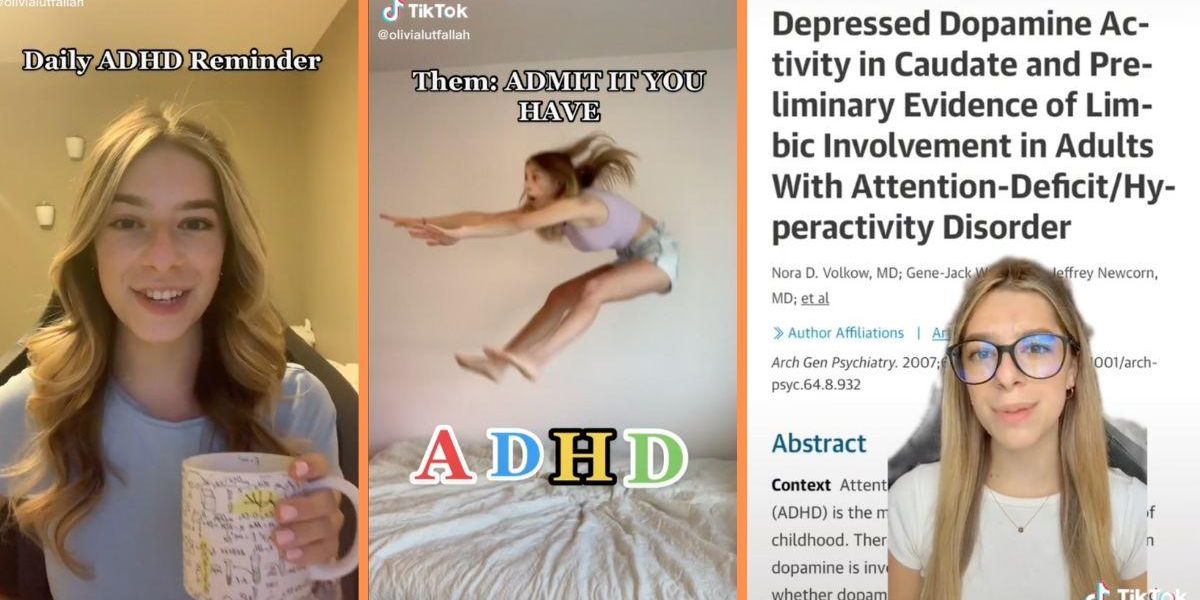Adult ADHD: Next Steps After A Suspected Diagnosis

Table of Contents
Seeking a Professional Evaluation for Adult ADHD
A self-diagnosis of Adult ADHD is never sufficient. It's crucial to seek a comprehensive evaluation from a qualified professional, such as a psychiatrist, psychologist, or a specialist in ADHD. These professionals possess the expertise to accurately diagnose and differentiate Adult ADHD from other conditions that may share similar symptoms.
-
Importance of a thorough diagnostic assessment: A proper assessment involves a combination of methods. This typically includes detailed questionnaires like the Conner's Adult ADHD Rating Scales or the Wender Utah Rating Scale, in-depth interviews exploring your history and current symptoms, and possibly neuropsychological testing to assess cognitive functions.
-
Self-diagnosis vs. Professional Diagnosis: While self-assessment tools can be helpful in raising awareness, they cannot replace a professional diagnosis. A qualified professional can accurately distinguish Adult ADHD from other conditions that may present with overlapping symptoms, such as anxiety, depression, or learning disabilities.
-
Finding qualified professionals specializing in Adult ADHD: Locating a specialist can be done through several avenues. Check online directories of mental health professionals, search for specialists in your insurance network, or ask your primary care physician for recommendations. Look for professionals with experience in diagnosing and treating adults with ADHD.
-
What to expect during the evaluation process: The evaluation process may span several sessions. Be prepared to discuss your symptoms in detail, your family history of ADHD, and your overall medical history. The professional will likely assess various aspects of your life, including your work performance, relationships, and daily routines.
-
Types of assessments used in diagnosing ADHD: Various assessment tools are available. Commonly used assessments include the Conner's Adult ADHD Rating Scales, which measures inattention, hyperactivity, and impulsivity, and the Wender Utah Rating Scale, which focuses on retrospective assessment of childhood symptoms.
Understanding the Diagnostic Criteria for Adult ADHD
The Diagnostic and Statistical Manual of Mental Disorders, Fifth Edition (DSM-5), outlines the criteria for diagnosing Adult ADHD. A diagnosis typically involves persistent patterns of inattention and/or hyperactivity-impulsivity that interfere with functioning or development.
-
Inattention symptoms: These may include difficulty sustaining attention in tasks or activities, trouble organizing tasks and activities, forgetfulness in daily activities, and easily being distracted by extraneous stimuli.
-
Hyperactivity/impulsivity symptoms: Examples include fidgeting or squirming, difficulty remaining seated, excessive talking, interrupting conversations, and difficulty waiting one's turn.
-
How symptoms manifest differently in adults: In adults, hyperactivity may be less outwardly noticeable than in children. Instead, it may manifest as restlessness, difficulty relaxing, or excessive talking. Inattention often presents as difficulty with organization, time management, and sustained focus on tasks.
-
The importance of ruling out other conditions: Symptoms of Adult ADHD can sometimes overlap with those of other conditions, like anxiety, depression, or learning disabilities. A thorough evaluation is crucial to rule out these possibilities and ensure an accurate diagnosis.
Exploring Treatment Options for Adult ADHD
Treatment for Adult ADHD is multifaceted and often involves a combination of approaches tailored to the individual's needs.
-
Medication management: Stimulant medications (like methylphenidate and amphetamine) and non-stimulant medications (like atomoxetine) are commonly used to manage ADHD symptoms. Potential side effects vary depending on the medication and individual response. Regular monitoring by a healthcare professional is crucial to manage side effects and adjust medication as needed.
-
Therapy options: Cognitive behavioral therapy (CBT) is frequently used to help individuals develop coping mechanisms and strategies for managing ADHD-related challenges. Therapy can also help address comorbid conditions, such as anxiety or depression. Coaching can provide additional support and strategies for improving daily functioning.
-
Lifestyle changes: Adopting healthy lifestyle habits significantly impacts symptom management. This includes prioritizing adequate sleep, maintaining a balanced diet, and incorporating regular physical exercise.
-
Support groups and communities: Connecting with others facing similar challenges provides invaluable emotional support and shared strategies for coping. Support groups and online communities offer a sense of belonging and practical advice.
Creating a Personalized Treatment Plan for Adult ADHD
Developing an effective treatment plan requires collaboration between the patient and their healthcare professional.
-
Regular monitoring and adjustment: Treatment plans are not static. Regular follow-up appointments are necessary to monitor treatment response, adjust medication as needed, and address any emerging challenges.
-
Setting realistic goals and expectations: Managing Adult ADHD is an ongoing process. Setting achievable goals and having realistic expectations for treatment outcomes contributes to long-term success.
-
The importance of ongoing communication: Open communication with your healthcare provider is essential. Don't hesitate to discuss any concerns, questions, or changes in your symptoms.
Coping with the Challenges of Adult ADHD
Managing the daily challenges associated with Adult ADHD requires developing effective coping strategies and building strong support systems.
-
Time management techniques and organizational strategies: Implementing time management techniques like using planners, setting reminders, and breaking down large tasks into smaller, manageable steps can significantly improve productivity.
-
Strategies for improving focus and concentration: Techniques such as mindfulness exercises, minimizing distractions, and utilizing focus aids can enhance concentration.
-
Dealing with emotional regulation and impulsivity: Strategies like deep breathing exercises, mindfulness practices, and cognitive restructuring can help manage emotional responses and impulsive behaviors.
-
Building support systems and seeking help when needed: Connecting with supportive family members, friends, or therapists provides emotional support and encouragement. Don't hesitate to seek professional help when needed.
Conclusion
This journey of understanding and managing Adult ADHD is a process that requires patience, persistence, and collaboration with healthcare professionals. The steps outlined above – seeking a professional evaluation, understanding the diagnostic criteria, exploring treatment options, and developing coping strategies – are crucial in navigating this journey. Remember, receiving an accurate diagnosis and developing a personalized treatment plan are essential steps towards improving your quality of life. Don't hesitate to take the next step and seek help for your suspected Adult ADHD. Taking control of your Adult ADHD and managing its symptoms is achievable with the right support and resources.

Featured Posts
-
 Has Tik Tok Changed How We Understand Adhd
Apr 29, 2025
Has Tik Tok Changed How We Understand Adhd
Apr 29, 2025 -
 Nyt Spelling Bee February 25 2025 Clues Answers And Spangram
Apr 29, 2025
Nyt Spelling Bee February 25 2025 Clues Answers And Spangram
Apr 29, 2025 -
 2 5 Trillion Wipeout The Market Value Collapse Of The Magnificent Seven
Apr 29, 2025
2 5 Trillion Wipeout The Market Value Collapse Of The Magnificent Seven
Apr 29, 2025 -
 Xs Post Debt Sale Financial Report Key Takeaways And Analysis
Apr 29, 2025
Xs Post Debt Sale Financial Report Key Takeaways And Analysis
Apr 29, 2025 -
 Czy Porsche Cayenne Gts Coupe Spelnia Oczekiwania Test Drogowy
Apr 29, 2025
Czy Porsche Cayenne Gts Coupe Spelnia Oczekiwania Test Drogowy
Apr 29, 2025
